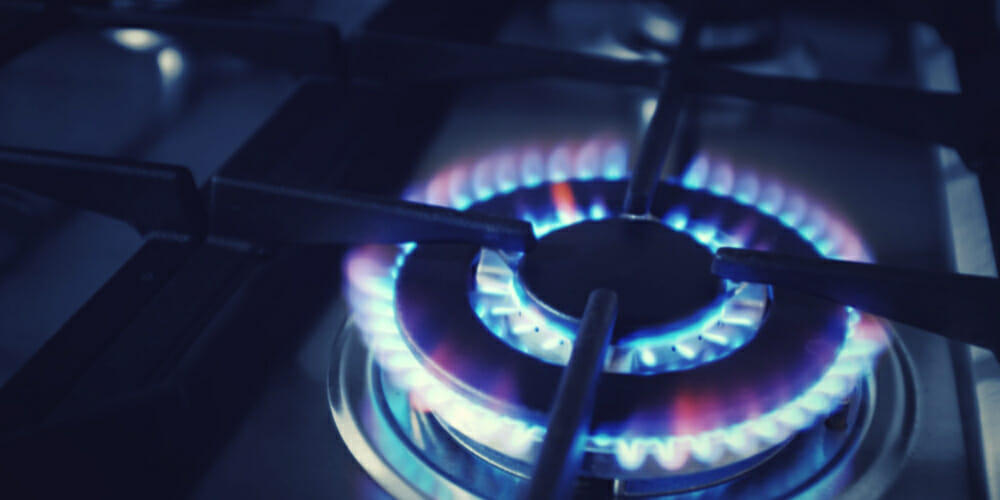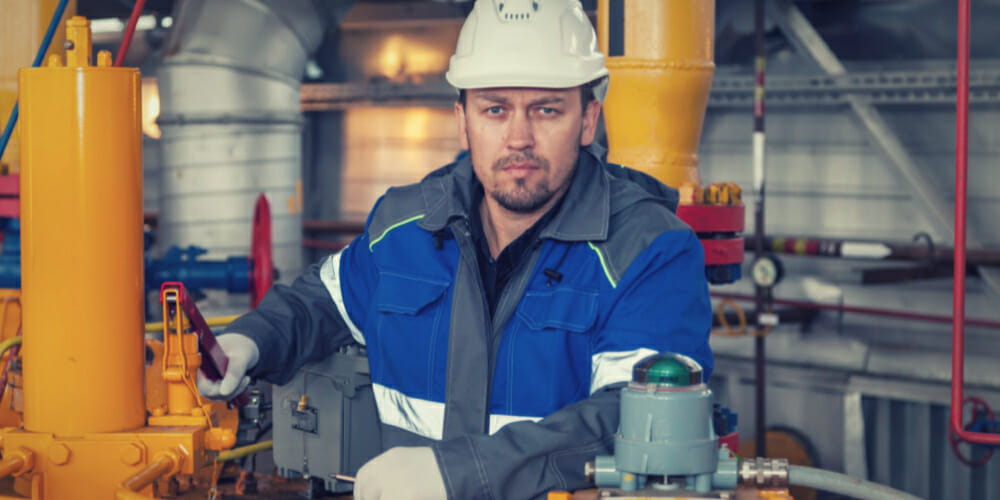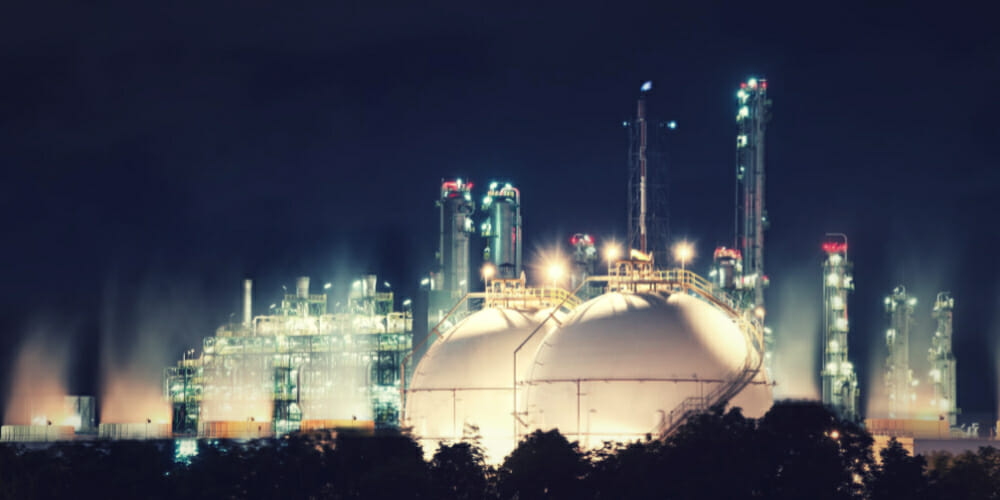The distribution of natural gas is a vital part of the energy industry, and many job opportunities are available in this field. According to the U.S. Bureau of Labor Statistics, the average annual pay for a natural gas distribution worker is $89,661 per year. So you should give it a shot, but how many jobs are available in natural gas distribution?
There are around 8940 jobs available in natural gas distribution, from entry-level jobs to management positions. There is a high demand for qualified workers in this field, so if you are interested in a career in natural gas distribution, now is a great time to get started.
In this blog, you’ll explore high-paying natural gas jobs, average annual salary, and job responsibilities. So let’s get started!
US Natural Gas Distribution Industry
The US natural gas distribution industry is critical to the country’s energy infrastructure. It supplies natural gas to homes and businesses across the United States and is vital in ensuring the country’s energy security.
The industry is made up of a large number of companies, both big and small, that operate pipelines and natural gas distribution networks. These companies transport natural gas from production areas to consumers and are responsible for safe and reliable gas delivery.
The US natural gas distribution industry offers a wide range of job opportunities for those with the right skills and qualifications. There are jobs available in all areas of the country and at all levels. From entry-level jobs in customer service and administration to managerial and executive positions, there are roles to suit everyone.
Functions of Natural Gas
Natural gas is a versatile energy resource that can be used for various purposes. The three most common uses for natural gas are as fuel for heating, cooling, and cooking. Here are some key functions of Natural Gas in today’s world:
Heating
Natural gas is the most popular fuel for home heating, accounting for about half of all residential heating needs in the United States. Natural gas furnaces are more than 90% efficient, meaning that almost all of the energy in the fuel is converted into heat for your home.
Cooking
Gas stoves are the most popular type of stove in the United States, accounting for about 50% of all sales. Gas stoves are preferred by many cooks because they heat up and cool down more quickly than electric stoves and are more precise in controlling temperatures.
Industrial Uses
Natural gas is an important raw material in a variety of industries, including the production of chemicals, plastics, fertilizer, and fabric. It is also used in the process of refining crude oil into gasoline and other petroleum products.
Electricity Generation
Natural gas is used to generate electricity in power plants. In fact, natural gas is the fastest-growing source of electricity generation in the United States. Natural gas-fired power plants are much cleaner and more efficient than coal-fired power plants.
Water Heating
Natural gas is also used to heat water in many homes and businesses. Water heaters that use natural gas are about 20% more efficient than electric water heaters. Natural gas water heaters can heat water quickly and evenly, meaning you won’t have to wait long for hot water. They also tend to be more energy-efficient than other types of water heaters, so you’ll save money on your energy bills.
Space Heating
Natural gas is used to heat space in both homes and businesses. Space heaters that use natural gas are about 30% more efficient than electric space heaters. When used for space heating, natural gas produces lower emissions than other fossil fuels such as oil and coal. This can help to improve the indoor air quality in your home and create a healthier environment for your family.
Available Jobs in the Natural Gas Distribution Industry
There are a number of different jobs available in the industry that distribute natural gas. Gas distribution companies are responsible for delivering natural gas to customers through an extensive network of pipelines. This ensures that homes and businesses have a constant gas supply for heating, cooking, and other needs.
Some of the most common positions in gas distribution companies include customer service representatives, gas pipeline operators, and maintenance workers. Here are some top available jobs in the Natural Gas Distribution Industry:
Engineers
Engineers design and oversee the construction of new gas pipelines and compressor stations. They also develop maintenance plans for existing infrastructure and design modifications to improve system performance. Gas engineers typically have a bachelor’s degree in engineering.
Average Salary: $98718 per year
Job Responsibilities
- Designing and overseeing the construction of new gas pipelines and compressor stations
- Developing maintenance plans for existing infrastructure
- Designing modifications to improve system performance
- Reviewing project proposals and budgets
- Preparing reports and presenting findings to gas company executives
Accountants
Accountants are responsible for maintaining financial records, preparing tax returns, and ensuring that gas companies comply with financial regulations. They may also be involved in developing budget plans and forecasting future expenses. Most accountants have a bachelor’s degree in accounting or a related field.
Average Salary: $77,927 per year
Job Responsibilities
- Maintaining financial records
- Preparing tax returns
- Ensuring compliance with financial regulations
- Developing budget plans
- Forecasting future expenses
Construction Workers
Construction workers build and maintain gas pipelines, compressor stations, and other gas infrastructure. They must be able to safely operate a variety of tools and equipment, and follow instructions from engineers and supervisors. Most construction workers have a high school diploma or equivalent.
Average Salary: $55,800 per year
Job Responsibilities
- Building and maintaining gas pipelines
- Constructing compressor stations
- Operating a variety of tools and equipment
- Following instructions from engineers and supervisors
- Working in teams to complete projects
Plumber
Plumbers install and repair piping systems that transport natural gas. Most plumbers have a high school diploma or equivalent and complete an apprenticeship program.
Average Salary: $62,244 per year
Job Responsibilities
- Ensure the safe and efficient distribution of natural gas to homes and businesses
- Installing, maintaining, and repairing pipelines, meters, and other equipment
- Regularly inspect systems for leaks and perform necessary repairs.
Pipefitter
Pipefitters also install and repair piping systems that transport natural gas. They must be able to safely work with gas lines and other high-pressure equipment. Most pipefitters have a high school diploma or equivalent and complete an apprenticeship program.
Average Salary: $54,271 per year
Job Responsibilities
- install and maintain pipes that transport gas to homes and businesses
- laying out plans, cutting and threading pipe, using welding equipment, and performing pressure tests to ensure the system’s integrity
- follow strict safety protocols and adhere to state and federal regulations.
- repairing and replacing old or damaged pipes
- troubleshooting issues and finding creative solutions in tight spaces.
Steamfitter
Steamfitters install and repair piping systems that transport natural gas. They must be able to work with gas lines and other high-pressure equipment safely. Most steamfitters have a high school diploma or equivalent and complete an apprenticeship program.
Average Salary: $6,5623 per year
Job Responsibilities
- install, inspect, and maintain pipes and equipment used for distributing natural gas
- laying pipe in compliance with state and local codes
- troubleshooting any issues that arise during the operation
- performing routine maintenance to ensure the system runs smoothly.
- understanding of natural gas distribution systems and the associated safety measures, as any malfunction can have serious consequences
- constantly monitor for leaks and take appropriate action if one is detected.
Best Paying Jobs in the Natural Gas Distribution Industry
The natural gas distribution industry offers a variety of high-paying jobs. Here are some of the best-paying positions in this field:
Gas Pipeline Distribution Supervisor
The average salary for this position is around $100,100 per year. However, the exact salary can vary depending on the specific company and location. The responsibilities of a Gas Pipeline Distribution Supervisor are given below:
- Ensure the safe and efficient distribution of natural gas to our customers
- Overseeing pipeline maintenance operations
- Managing personnel and resources
- Complying with regulations
- Resolving any issues that may arise
Gas Maintenance Manager
The average salary for a gas maintenance manager is $101,973 per year. As a gas maintenance manager, you would be responsible for overseeing the maintenance of a gas distribution system.
Job responsibilities of a gas maintenance manager include:
- Oversee the operation and maintenance of natural gas distribution systems
- Managing budgets
- Scheduling maintenance and repairs
- Ensuring compliance with safety regulations
- Supervising personnel
Pipeline Engineer
The average salary for a pipeline engineer is $103,485 per year. As a pipeline engineer, you would be responsible for designing and overseeing the construction of gas pipelines.
Job responsibilities of a pipeline engineer include:
- Oversee the design, construction, operation, and maintenance of pipelines
- Managing budgets and schedules
- Conducting inspections and reviewing safety procedures
- Troubleshooting technical issues
Gas Meter Mechanic
The average salary for a gas meter mechanic is $87,300 per year. As a gas meter mechanic, you would be responsible for installing, repairing, and maintaining gas meters.
Job responsibilities of a gas meter mechanic include:
- Installing gas meters
- Repairing gas meters
- Maintaining gas meters
- Ensuring that the meters meet safety and regulatory requirements
- Coordinating with other departments to ensure the efficient operation of the meters
- Troubleshooting problems with the meters
Gas Compressor Mechanic and Repairer
The average salary for a gas compressor mechanic and repairer is $58,729 per year. As a gas compressor mechanic and repairer, you would be responsible for repairing and maintaining gas compressors.
Job responsibilities of a gas compressor mechanic and repairer include:
- Inspect, maintain, and repair gas compressor stations and equipment in natural gas distribution systems
- Troubleshooting mechanical and electrical systems
- Performing routine maintenance tasks
- Replacing defective parts.
Distribution Operator
The average salary for a distribution operator is $80,533 per year. As a distribution operator, you would be responsible for operating and maintaining a gas distribution system.
Job responsibilities of a distribution operator include:
- Monitor and operate equipment such as valves, meters, and pumps in order to ensure safe and efficient distribution of natural gas
- Constant attention to detail and problem-solving skills in order to quickly address any issues that arise in the distribution process
Gas Measurement Specialist
The average salary for a gas measurement specialist is $61,222per year. As a gas measurement specialist, you would be responsible for taking measurements of natural gas pipeline flow and pressure.
Job responsibilities of a gas measurement specialist include:
- Accurately measuring and recording gas usage
- Maintaining equipment
- Performing calibration checks
- Troubleshooting issues
Substation Electrical Engineer
The average salary for a substation electrical engineer is $88,149 per year. As a substation electrical engineer, you would be responsible for designing, testing, and maintaining substations.
Job responsibilities of a substation electrical engineer include:
- Designing and maintaining high-voltage substations
- Monitoring equipment performance
- Ensuring compliance with safety regulations
Gas Pipeline Inspector/Examiner
The average salary for a gas pipeline inspector/examiner is $79,434 per year. As a gas pipeline inspector/examiner, you would be responsible for inspecting and testing natural gas pipelines.
Job responsibilities of a gas pipeline inspector/examiner include:
- Inspect and examine natural gas distribution systems for compliance with federal regulations and company policies
- Inspecting pipeline construction and maintenance activities
- Identifying potential safety hazards
- Conducting pressure tests on pipelines
Gas Power Plant Operator
The average salary for a gas power plant operator is $67,762 per year. As a gas power plant operator, you would be responsible for operating and maintaining a gas power plant.
Job responsibilities of a gas power plant operator include:
- Monitor and control the equipment and machinery at the power plant
- Managing all aspects of natural gas distribution, from storage to transportation to end-use
Gas Technician and Natural Gas Engineer
The average salary for a gas technician is $78,772 per year. As a gas technician, you would be responsible for installing, repairing, and maintaining natural gas pipelines.
Job responsibilities of a gas technician and natural gas engineer include:
- Maintaining and operating natural gas distribution systems
- Inspecting pipelines
- Detecting and repairing leaks
- Monitoring system pressure
- Working with customers on service-related issues as well as educating them on safety measures
Electronics Technician and Electrical Engineer
The average salary for an electronics technician is $54,986 per year. As an electronics technician, you would be responsible for installing, repairing, and maintaining electronic equipment.
Job responsibilities of an electronics technician include:
- installing electronic equipment
- repairing electronic equipment
- maintaining electronic equipment
- ensuring that the equipment meets safety and regulatory requirements
- coordinating with other departments to ensure the efficient operation of the equipment
- troubleshooting problems with the electronic equipment.
Construction and Maintenance Manager
The average salary for a construction and maintenance manager is $98,100 per year. As a construction and maintenance manager, you would be responsible for overseeing the construction and maintenance of natural gas pipelines.
Job responsibilities of a construction and maintenance manager include:
- overseeing the construction of natural gas pipelines
- overseeing the maintenance of natural gas pipelines
- ensuring that the pipelines meet safety and regulatory requirements
- coordinating with other departments to ensure the efficient operation of the pipelines
- troubleshooting problems with the pipelines.
These are just some of the highest-paying jobs in the natural gas distribution industry. If you are interested in a career in this field, there are many opportunities for you to pursue. With the right education and experience, you can find a job that suits your skills and interests.
Currently Available Jobs in the Natural Gas Distribution Industry
The natural gas distribution industry offers a variety of job opportunities for those with the right training and qualifications. Jobs in this industry can be both challenging and rewarding, with good salaries and prospects.
However, it is important to note that the natural gas distribution industry is a regulated industry, and strict safety standards must be met. This means that training and qualifications are essential for anyone wishing to work in this industry.
There are a number of different types of jobs available in the natural gas distribution industry, from technicians and engineers to project managers and safety specialists. Here is a brief overview of some of the most common roles:
- Technicians: Natural gas technicians install, maintain, and repair gas pipelines and associated equipment. They must be familiar with a variety of tools and safety procedures and must be able to work in both indoor and outdoor environments.
- Engineers: Natural gas engineers are responsible for designing, constructing, and maintaining gas pipelines and associated equipment. They must have a solid understanding of physics and engineering principles and must be able to work with a variety of tools and technologies.
- Project managers: Project managers in the natural gas industry are responsible for overseeing the construction and maintenance of gas pipelines and associated facilities. They must be able to manage people and resources effectively and must have excellent project management skills.
- Safety specialists: Safety specialists in the natural gas industry are responsible for ensuring that all safety procedures are followed. They must have a solid understanding of safety regulations and must be able to communicate effectively with both workers and management.
Training & Educational Requirement
In order to work in the natural gas distribution industry, you will need to have the right training and qualifications. There are a number of different ways to get this training, including completing an apprenticeship or a traineeship or studying for a vocational qualification.
Apprenticeships and traineeships:
Apprenticeships and traineeships are great ways to get the hands-on experience you need to work in the natural gas industry. You will learn about a variety of topics, including safety procedures, equipment operation and maintenance, and pipeline construction.
Vocational qualifications:
Vocational qualifications can give you the theoretical knowledge you need to work in the natural gas industry. There are a number of different qualifications available, depending on your chosen field of work.
Average Salary
Salaries in the natural gas distribution industry can vary depending on your role, experience, and qualifications. However, there is potential to earn a good salary in this industry. Here are some examples of average salaries for popular roles:
- Technicians: $22,000 – $132,000
- Engineers: $22,000 – $148,500
- Project managers: $128,934 – $171,040
- Safety specialists: $42,000 – $125,500
Things You Should Know in the Natural Gas Distribution Industry
The distribution of natural gas is an essential part of the energy industry. It is a complex process that involves a number of different players, from gas producers to gas utilities. Here are some things you should know about the natural gas distribution industry:
The natural gas distribution industry in the US plays a crucial role in delivering energy to homes and businesses. It is responsible for transporting gas through pipelines, managing local storage facilities, and providing customer services.
This industry faces challenges such as aging infrastructure and increasing regulatory requirements. However, investments are being made to modernize and enhance safety measures for pipeline systems.
Additionally, natural gas is becoming a more attractive option as a clean and affordable source of energy. In fact, it currently accounts for about one-quarter of the country’s total energy consumption.
By investing in the modernization and improvement of infrastructure, the natural gas distribution industry plays a vital role in ensuring a reliable energy supply for the US.
FAQs
Is Natural Gas Cheaper than Electric?
Natural gas is often seen as the cheaper option when compared to electricity, but this may not always be the case. The cost of natural gas has been rising in recent years, while the cost of electricity has stayed relatively stable. In addition, electric appliances are often more efficient than their natural gas counterparts, meaning that you may save money in the long run by choosing electric.
There are a lot of factors to consider when trying to determine whether natural gas or electricity is cheaper. Some of these include the cost of the fuel itself, the efficiency of the appliances, and the price of installation and maintenance.
Is Natural Gas Better than Electric?
It depends on your priorities. If you’re looking to save money, natural gas is the way to go. But if you want to be more environmentally friendly, electricity is the better choice.
There are a few things to consider when making this decision. Natural gas is typically cheaper than electricity, but it produces greenhouse gases when burned. Electricity doesn’t produce greenhouse gases, but it can be more expensive.
What Are the Opportunities in Gas?
There are several reasons why now is a good time to invest in gas. First, the gas price is relatively low right now, making it a more affordable energy source. Additionally, as we move away from carbon-intensive energy sources like coal, gas is a cleaner-burning fossil fuel that can help us transition to a more sustainable future.
How Many Years of Natural Gas is Left in the US?
It’s estimated that the US has enough natural gas to last us around 12 years. This is based on current consumption rates and the known reserves of natural gas. However, this number is only an estimate, and it’s possible that new discoveries or changes in consumption could alter this estimate. In any case, it’s clear that natural gas will play an important role in our energy mix for many years to come.
Conclusion
The demand for natural gas is increasing all the time as more and more people and businesses switch from using other forms of energy to using this cleaner, more efficient fuel. This means that there are plenty of job opportunities available in natural gas distribution. With the right training and experience, you can find a good job in this field.














